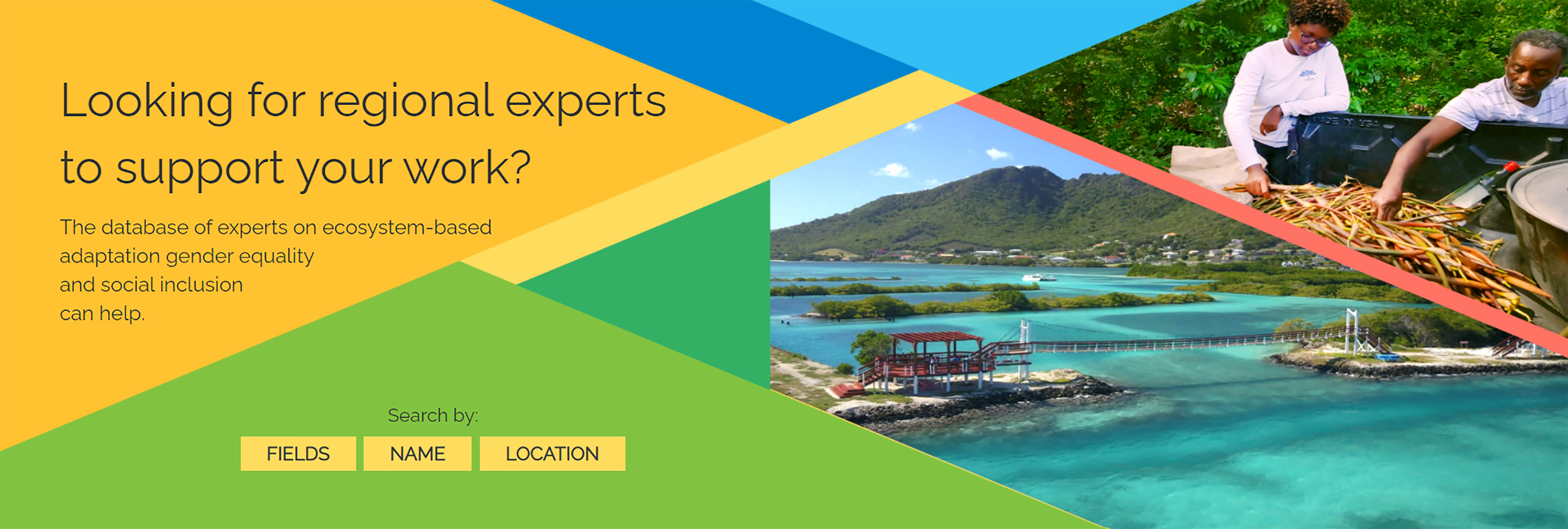OECS Launches Database of Experts on Ecosystem-Based Adaptation, Gender Equality and Social Inclusion
Media Release
On the fifth anniversary of the adoption of the Paris Climate Agreement, and ahead of the Glasgow Climate Change Conference, the UN Biodiversity Conference, and the Generation Equality Forum, the OECS Commission has launched a database of professionals in the fields of Ecosystem-based Adaptation (EbA), and Gender Equality and Social Inclusion (GESI).
Chamberlain Emmanuel, Director of the Environmental Sustainability Division at the OECS Commission, welcomes the launch of the database which he said, “provides a powerful platform to support nature-based, people-centred adaptation to Climate Change by helping to match country adaptation needs with the required expertise.”
Emmanuel is encouraging professionals in the respective fields to register their profiles and inviting practitioners and those in need of relevant expertise to make full use of search options available on the digital platform which include, name of expert; type of expertise; and location of expert by country.
This initiative reflects the clear global consensus that climate change is not a future threat but, rather, one that is already present in the region in drought and rising temperatures; excessive rainfall events and floods as well as sea-level rise; saltwater intrusion; coastal erosion, and increasingly severe storms, all of which are adversely impacting people, infrastructure and ecosystems with increasingly devastating impact.
With scientific evidence indicating that these trends will continue at an accelerating pace, the OECS Commission has adopted an innovative and transformative approach that transcends the ecological to include political, economic, social and cultural practices and norms that impact adaptation efforts. In this context, the EbA and GESI professional database will join a growing range of tools and resources that have been assembled and made available to regional stakeholders in climate change adaptation, from the most high-level planners and policymakers to those in the field. The Commission aims to ensure, as far as possible, that the Eastern Caribbean is equipped with the tools, knowledge and information needed to adapt to the changing climate.
The launch of the EbA & GESI database follows the launch of EbA and GESI case studies and a Toolkit, which outlines a 3-step process for formulating projects.
All products were developed under the Mainstreaming Ecosystem-based Adaptation, Gender Equality & Social Inclusion into Climate Change Adaptation project, with the support of the Adapt’Action Facility of the French Development Agency. Find out more at oecs.int.
Click here to access the Expert Database!


